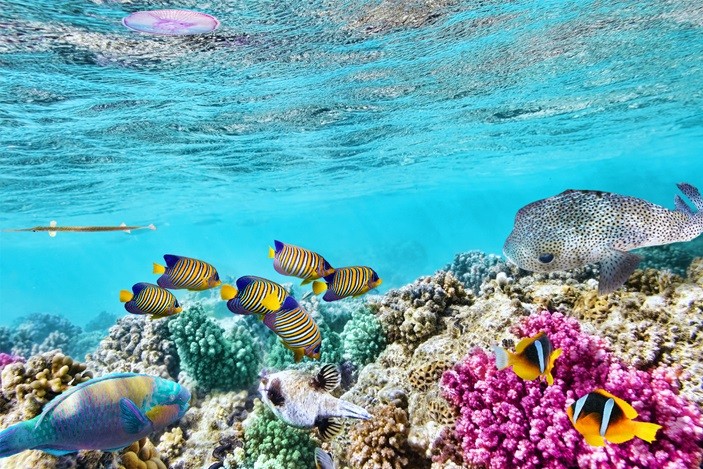08/08/2024
08/08/2024

SYDNEY, Australia, Aug 8: Water temperatures in and around Australia's Great Barrier Reef have surged to their highest levels in 400 years over the past decade, placing the world's largest reef at significant risk, according to research published on Thursday.
The Great Barrier Reef, spanning approximately 1,500 miles (2,400 km) off the coast of Queensland, is the largest living ecosystem on Earth. This new research provides a historical context to the impacts of man-made climate change, contrasting with previous studies that have only considered more recent time frames.
Scientists from various Australian universities conducted a study by drilling cores into coral reefs and analyzing them to measure historical summer ocean temperatures dating back to 1618. Combined with ship and satellite data from the past century, the study revealed that ocean temperatures, which had been stable for hundreds of years, began to rise from 1900 onwards due to human activities.
The research noted an average annual warming of 0.12°C (0.22°F) per decade from January to March between 1960 and 2024. Since 2016, the reef has endured five summers of mass coral bleaching, characterized by widespread coral bleaching due to heat stress, which significantly increases the risk of coral death. These bleaching events occurred during five of the six warmest years in the last 400 years.
Benjamin Henley, an academic at the University of Melbourne and co-author of the study, expressed concern over the findings: "The world is losing one of its icons. It’s very, very sad," he said. The most recent temperature data from January to March of this year was noted as the highest on record, significantly surpassing previous levels.
Coral reefs are crucial for protecting shorelines from erosion, supporting diverse marine life, and generating substantial tourism revenue. Since February 2023, at least 54 countries and regions have reported mass bleaching of their reefs, according to the U.S. National Oceanic and Atmospheric Administration (NOAA), driven by rising ocean temperatures due to climate change.
While the Great Barrier Reef is not currently listed as a World Heritage site in danger by UNESCO, there are recommendations for its inclusion. Australia has actively lobbied to keep the reef off the endangered list to avoid potential negative impacts on tourism, which contributes A$6.4 billion ($4.2 billion) annually to the economy.
Lissa Schindler, Great Barrier Reef campaign manager at the Australian Marine Conservation Society, emphasized the urgency of increased climate action: "Australia must increase its ambition, action, and commitments to battle climate change and protect our greatest natural asset."


